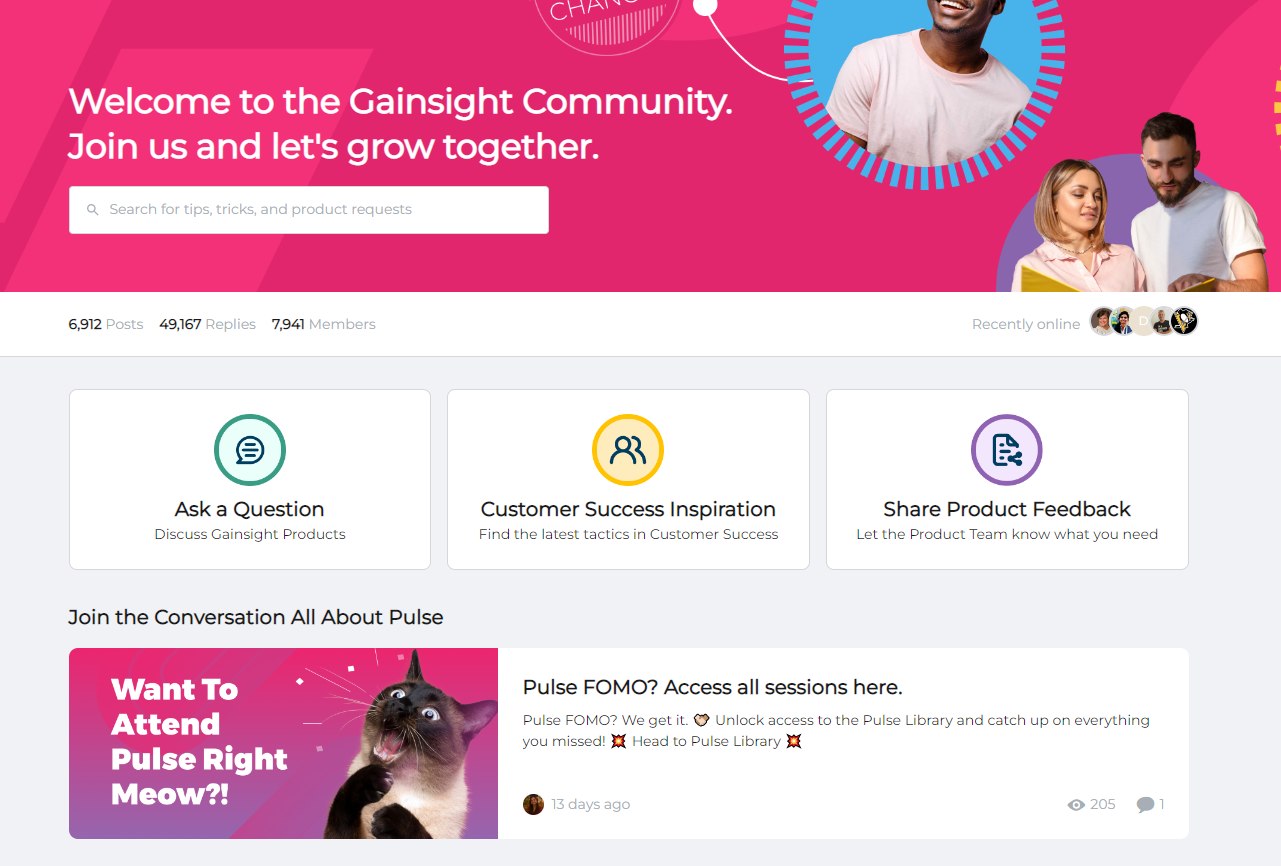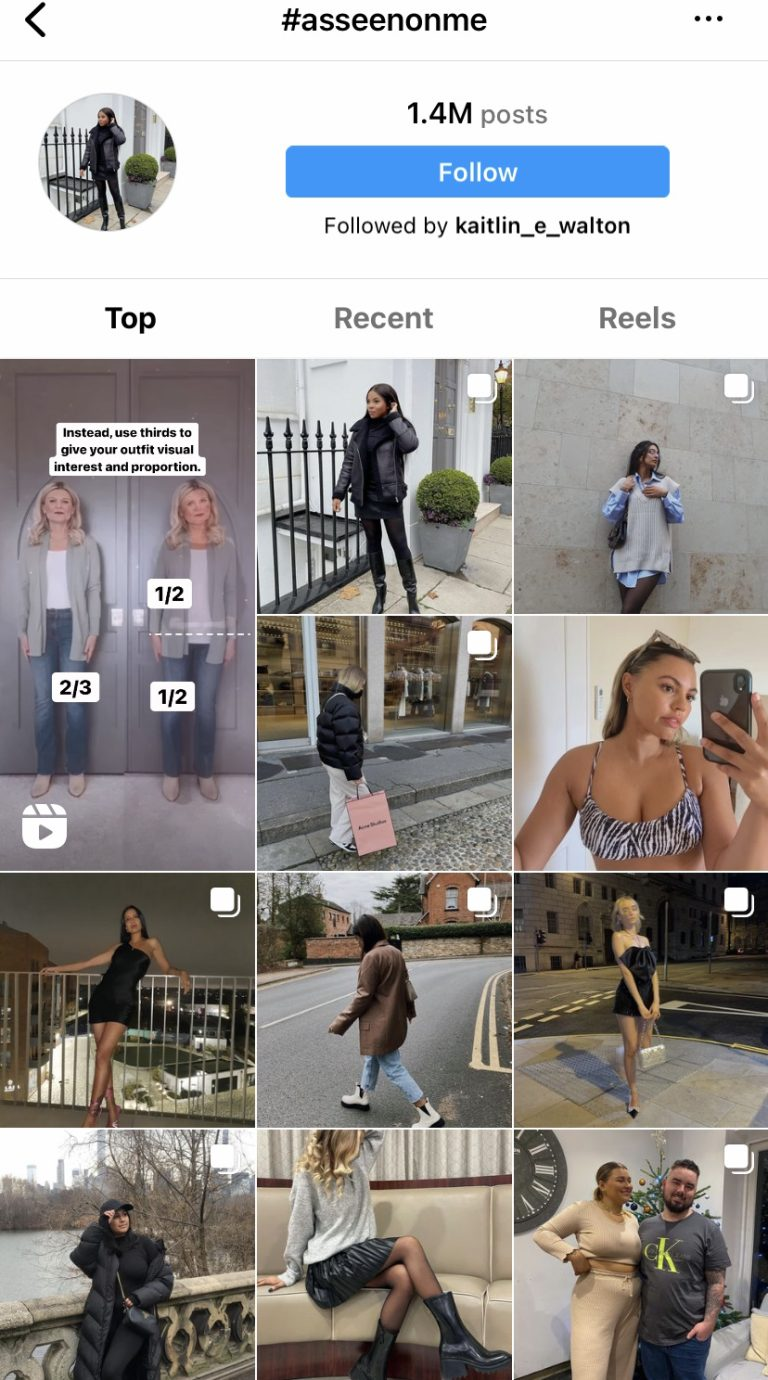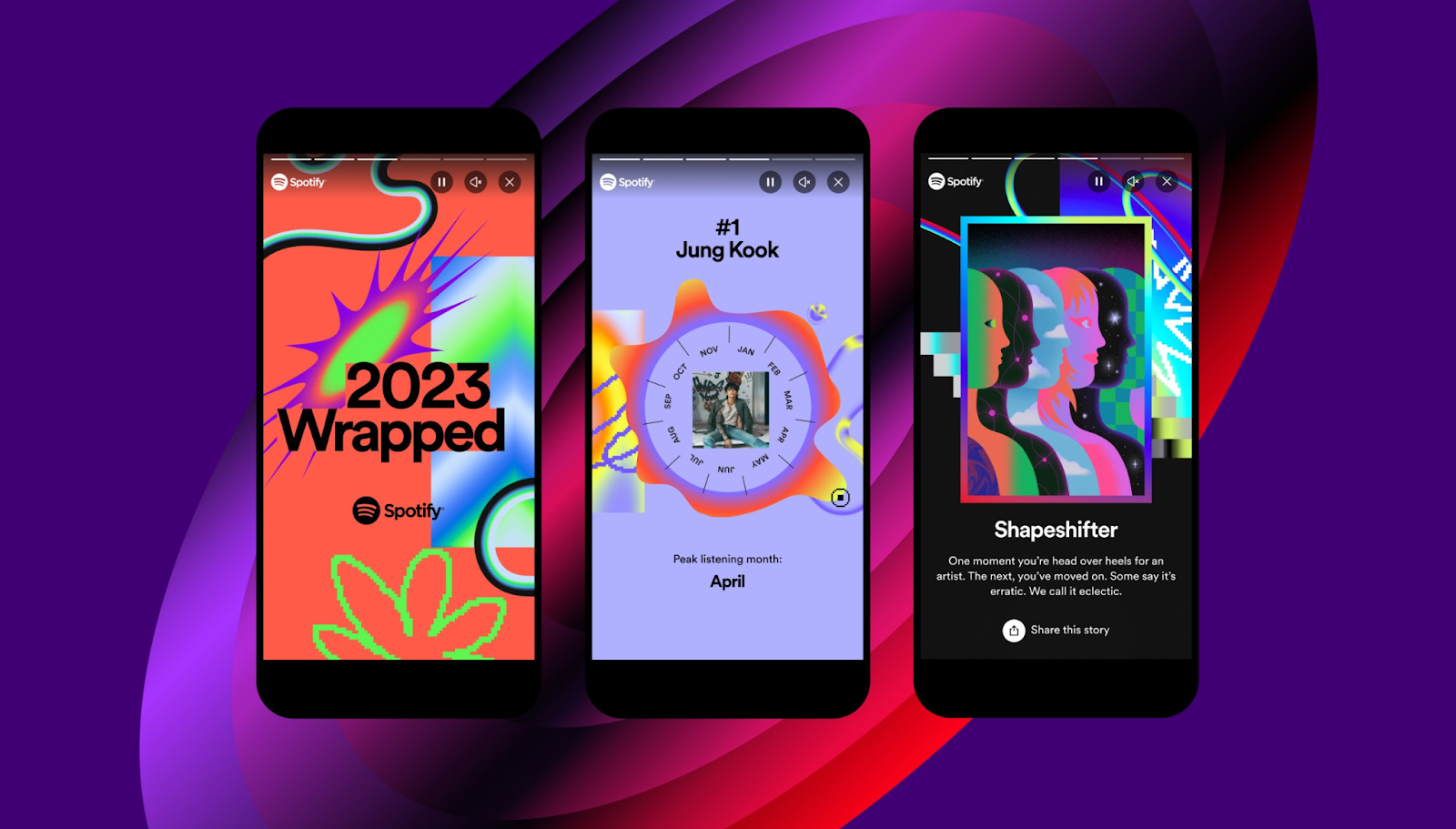%20(1).jpg)
These days, the term “customer engagement” is everywhere. It’s a popular buzzword in e-commerce and business, yet defining it isn’t always simple. True engagement isn’t just sending marketing messages or getting likes and shares on social media. It’s about creating real, two-way interactions that build meaningful connections.
Customer engagement is essential for running a successful Shopify business. Building relationships and earning trust should be a top priority. When done right, engagement drives loyalty and shows your brand’s human side while delivering value beyond transactions.
Many businesses, however, focus too much on acquiring new customers and neglect engagement, which can lead to missed opportunities and even failure. A customer-centric approach that focuses on engaging consistently and rewarding loyal customers is key to long-term success.
"The more you engage with customers the clearer things become and the easier it is to determine what you should be doing."
John Russell
By keeping customers engaged throughout their journey, you gain a better understanding of their needs and build lasting loyalty.
In this article, we’ll cover:
- What is Customer Engagement (CE)?
- How Engagement and Loyalty are Connected
- Proven Strategies to Increase Engagement and Retention
Let’s dive in!
What Is Customer Engagement?
Customer engagement is the ongoing interaction between a brand and its customers across multiple touchpoints, both online and offline. It goes beyond simple transactions and focuses on creating meaningful, personalized experiences that make customers feel valued and connected to your brand.
Unlike traditional marketing, where communication flows in one direction from the brand to the consumer, true engagement is a two-way relationship. It involves listening to your customers, understanding their needs, and providing value at every stage of their journey. This can include personalized recommendations, loyalty rewards, relevant content, and seamless customer support.
Strong customer engagement results in more than just repeat purchases; it builds trust, emotional connection, and brand advocacy. Engaged customers are more likely to stick around, spend more, and recommend your business to others.
In essence, customer engagement is about creating relationships, not just sales. By prioritizing consistent, personalized, and value-driven interactions, businesses can foster lasting loyalty and long-term growth.
Why Customer Engagement Matters
In today’s competitive landscape, customer engagement is no longer optional—it’s essential for sustainable business growth. With so many options available, customers can easily switch to competitors if they don’t feel valued or connected. Engaging them consistently helps build trust, loyalty, and stronger relationships that drive long-term success.
Engaged customers aren’t just buyers; they’re active participants in your brand’s journey. They interact with your content, leave feedback, join loyalty programs, and recommend your products to others. This creates deeper emotional connections that result in repeat purchases and long-lasting advocacy.
Statistics clearly show why engagement matters:
- Acquiring a new customer costs 5–7 times more than retaining an existing one.
- 87% of customers who had an excellent experience will make another purchase, compared to just 18% of those who had a negative one.
- Companies that prioritize customer engagement strategies see up to a 30% increase in cross-selling and upselling revenue.
- Highly engaged customers are 90% more likely to buy again and five times more likely to recommend your brand.
Key Benefits of Customer Engagement
- Boosts Retention and Reduces Churn
Engaged customers are more likely to return, make repeat purchases, and stay loyal over time. - Drives Loyalty and Advocacy
Customers who feel valued become loyal supporters and frequently recommend your brand to others. - Improves Customer Experience
Continuous engagement helps you understand your customers better and deliver more personalized, seamless experiences. - Increases Revenue and Customer Lifetime Value
Engaged customers spend more, stay longer, and contribute significantly to profitability. Businesses that focus on engagement often see 20% higher revenues than their competitors. - Provides Actionable Insights
Frequent interactions generate valuable data on customer behavior, preferences, and needs, helping refine your marketing strategies and products.
In short, customer engagement turns one-time buyers into loyal brand advocates. By prioritizing consistent, personalized, and meaningful interactions, you not only strengthen relationships but also create a sustainable foundation for long-term growth.
Customer Engagement vs. Customer Loyalty
While customer engagement and customer loyalty are closely related, they are not the same thing. Understanding the difference is essential for building a successful long-term strategy.
Customer engagement focuses on the ongoing interactions between your brand and your customers. It’s about creating personalized experiences, maintaining regular communication, and providing value that keeps customers interested and connected. Engagement happens before loyalty; it is the process of nurturing relationships through meaningful touchpoints like social media, email campaigns, loyalty programs, and excellent customer support.
Customer loyalty, on the other hand, is the result of consistent and effective engagement. Loyalty develops when customers not only continue buying from you but also trust your brand and actively choose it over competitors. Loyal customers often become brand advocates, recommending your products or services to friends, family, and their online communities.
In short:
- Engagement is the process of building relationships.
- Loyalty is the outcome of those efforts.
By prioritizing customer engagement, you create the foundation for long-term loyalty, higher retention rates, and increased customer lifetime value.
How to Measure Customer Engagement
You can’t improve what you can’t measure. Tracking customer engagement metrics helps you understand how effectively your brand connects with customers and whether your strategies are driving long-term relationships or just one-time transactions. By monitoring the right data, you can identify what’s working, where customers drop off, and how to optimize their experience.
Here are the key metrics to focus on:
Guest Checkout Rate
The guest checkout rate measures the percentage of customers who make a purchase without creating an account. A high rate often suggests that shoppers aren’t finding enough value in registering or engaging with your brand.
To improve this metric, encourage customers to sign up by offering incentives like loyalty points, referral bonuses, or exclusive discounts. By motivating users to create accounts, you open the door to personalized marketing, loyalty programs, and stronger long-term relationships.
Purchase Frequency
Purchase frequency shows how often customers buy from you within a specific timeframe. A higher frequency usually signals stronger engagement and a deeper connection with your brand.
Tracking this metric helps you measure the impact of engagement strategies like personalized email campaigns, loyalty tiers, or product recommendations. If purchase frequency isn’t improving, it’s a sign that customers need more value or incentives to keep coming back.
Average Order Value (AOV)
Average order value (AOV) reflects how much customers spend on average per purchase. A growing AOV often indicates increased trust in your brand and a willingness to explore higher-value products or add-ons.
You can boost AOV through cross-selling, upselling, product bundles, and personalized recommendations. With Growave’s tools, like wishlists and tailored product suggestions, you can naturally encourage customers to spend more without feeling pushed.
Repeat Purchase Rate (RPR)
The repeat purchase rate (RPR) measures the percentage of customers who return to buy again and is one of the strongest indicators of loyalty and engagement. A higher RPR shows that your customers are not only satisfied but also emotionally connected to your brand.
You can increase RPR by offering loyalty programs, referral campaigns, and VIP tiers that make customers feel valued and rewarded for staying with your brand.
Monitoring these engagement metrics gives you actionable insights into customer behavior. You can identify friction points, measure the effectiveness of loyalty strategies, and deliver more personalized experiences. Over time, this approach helps you improve retention, increase revenue, and build a loyal customer base that advocates for your brand.
Customer Engagement Strategies That Work
Building strong customer relationships doesn’t happen by chance; it requires a thoughtful approach backed by actionable strategies. Below are five proven tactics that drive engagement and loyalty. Each includes a quick look at why it works and how to apply it, so you can implement them effectively in your Shopify store.
Loyalty and Rewards Programs

Customers love being rewarded for their loyalty. Programs that offer points, VIP tiers, and referral bonuses give shoppers extra motivation to come back, spend more, and share your brand with others. Loyalty initiatives also create a sense of exclusivity, which strengthens emotional connections.
How to apply it:
- Use a points-based system where customers earn rewards for purchases, referrals, reviews, or even social interactions.
- Introduce VIP tiers to encourage progression, giving high-value customers early access to sales or premium perks.
- Launch referral programs to turn your existing customers into advocates and bring in new shoppers.
Tip: With Growave, you can seamlessly manage points, referrals, and VIP tiers in one platform, making it easy to increase engagement and repeat purchases.
User-Generated Content (UGC) and Social Interaction

UGC builds trust and authenticity. When customers share real photos, reviews, and stories about your products, it acts as powerful social proof. Seeing others engage with your brand motivates potential buyers and deepens connections with existing customers.
How to apply it:
- Encourage customers to post photos of your products on Instagram or TikTok using branded hashtags.
- Feature UGC on your website, product pages, or emails to showcase authentic customer experiences.
- Incentivize reviews and content creation by rewarding customers with points or discounts.
Pro Tip: Growave’s review and UGC tools help collect and display authentic customer content to boost credibility and engagement.
Personalized Omnichannel Messaging

Today’s customers expect personalized experiences across all channels. Tailoring messages based on behavior, purchase history, or preferences makes customers feel valued and understood, which drives engagement and conversions.
How to apply it:
- Segment your audience by shopping behavior, demographics, and interests.
- Send personalized emails with curated product recommendations or loyalty updates.
- Use SMS and in-app notifications to share exclusive offers or reminders at the right time.
- Ensure a seamless, consistent experience across platforms, from social media to checkout.
Community-Building

A strong community fosters belonging and connection, turning customers into loyal brand advocates. People who feel like they’re part of something bigger are more likely to stick with your brand and actively promote it.
How to apply it:
- Create forums or private groups where customers can share feedback and connect.
- Host virtual or in-person events, such as product launches, webinars, or loyalty-exclusive meetups.
- Build social groups on platforms like Instagram, Facebook, or Discord to keep conversations going.
Proactive Support and Feedback Loops
Engagement isn’t just about selling — it’s also about listening. Providing proactive support shows customers you care, while acting on feedback builds trust and improves the overall experience.
How to apply it:
- Offer real-time chat support and self-service resources to resolve issues quickly.
- Collect feedback regularly through surveys, polls, or reviews.
- Use insights from feedback to improve products, services, and engagement strategies.
- Close the loop by letting customers know how their input has shaped your decisions.
Examples of Customer Engagement Strategies
Customer engagement takes many forms, and some of the world’s most innovative companies have developed creative ways to connect with their audiences. Below are real-world examples of how well-known brands use unique strategies to build stronger relationships, boost loyalty, and create lasting connections with their customers.
Duolingo: Gamified Engagement

Duolingo has mastered gamification to keep users engaged and returning daily. By introducing streaks, badges, leaderboards, and personalized reminders, the platform makes learning fun and addictive.
Why it works:
- Uses gamified mechanics to motivate daily interaction
- Sends personalized notifications to re-engage inactive users
- Builds a sense of progress and achievement
Takeaway for Shopify stores:
Incorporate gamified loyalty elements like progress bars, tier badges, or milestone rewards to encourage customers to come back and stay active.
ASOS: Social-First Engagement

ASOS leverages social platforms to engage shoppers directly. Through TikTok challenges, Instagram try-on reels, and influencer collaborations, ASOS turns customers into active participants in its marketing campaigns.
Why it works:
- Connects with customers where they already spend time
- Encourages UGC through fun challenges and branded hashtags
- Builds a social-driven shopping experience that feels personal
Takeaway for Shopify stores:
Use Instagram, TikTok, or Threads to create interactive campaigns and encourage customers to share style ideas, reviews, or experiences featuring your products.
Peloton: Community-Driven Retention

Peloton thrives by building a passionate fitness community. Members join live-streamed workouts, compete on leaderboards, and connect through shared goals, making customers feel part of something bigger.
Why it works:
- Combines personalized fitness tracking with a social experience
- Builds brand loyalty through community support and recognition
- Encourages repeat engagement via challenges and group milestones
Takeaway for Shopify stores:
Create micro-communities where customers connect, share results, and celebrate milestones together. This works especially well for wellness, fashion, or lifestyle brands.
Spotify: Hyper-Personalized Experiences

Spotify uses customer data to deliver highly personalized engagement. From the annual Spotify Wrapped campaign to custom playlists, users feel seen and understood on a personal level.
Why it works:
- Leverages data for personalized recommendations
- Creates viral engagement campaigns like Wrapped to drive sharing
- Builds loyalty through a unique, individualized experience
Takeaway for Shopify stores:
Personalize email campaigns and recommendations based on browsing and purchase history to make every customer interaction feel custom-tailored.
Tools to Increase Customer Engagement
Implementing the right strategies is essential, but using the right tools can make a huge difference in how effectively you connect with your customers. Modern e-commerce platforms and apps provide automation, personalization, and analytics to help you engage shoppers across multiple touchpoints.
Here are some essential tools to boost engagement and loyalty:
- Loyalty & Rewards Platforms – Build points-based programs, VIP tiers, and referral campaigns to motivate repeat purchases. (Example: Growave offers a complete loyalty solution for Shopify stores.)
- Personalization Engines – Use data-driven tools to recommend products, tailor offers, and personalize the customer journey.
- Email & SMS Marketing Tools – Deliver personalized campaigns, product updates, and rewards notifications at the right time to keep customers engaged.
- Review & UGC Platforms – Collect authentic customer reviews, photos, and testimonials to build trust and credibility.
- Analytics & Engagement Tracking – Monitor purchase frequency, repeat purchase rate, and average order value to measure the impact of your strategies and optimize them.
By combining these tools with a customer-first approach, you can create personalized experiences that strengthen relationships, increase retention, and drive long-term growth.
Conclusion
In today’s competitive e-commerce landscape, customer engagement is the foundation of loyalty and long-term growth. When you consistently connect with your audience through personalized experiences, seamless communication, and meaningful interactions, you transform one-time buyers into loyal advocates who trust your brand and keep coming back.
By implementing strategies like loyalty programs, user-generated content, omnichannel messaging, community-building, and proactive support, you create a customer journey that feels personal and rewarding at every touchpoint. These efforts don’t just improve retention; they boost lifetime value, increase referrals, and strengthen your brand reputation.
If you’re ready to take your engagement strategy to the next level, Growave’s all-in-one platform can help. From loyalty and referral programs to personalized recommendations, reviews, and omnichannel messaging, Growave provides the tools you need to attract, engage, and retain customers effectively.
Start building stronger relationships today and turn every interaction into an opportunity for growth.
Discover Growave’s Engagement & Loyalty Tools →
Editor's note: This post was originally written by Erlan Emilev and has been updated by Polina Kulikova for comprehensiveness.
What is your current returning customer rate?
Want to close the gap?
FAQ
What is customer engagement and how does it relate to loyalty?
Customer engagement refers to the ongoing interactions between a brand and its customers, aiming to build a strong relationship. Engaged customers are more likely to develop loyalty, leading to repeat purchases and long-term commitment to the brand.
Why is customer engagement important for e-commerce businesses?
Customer engagement is crucial for e-commerce as it helps in building trust, encouraging repeat purchases, and fostering brand advocacy. Engaged customers are more likely to become loyal, reducing churn rates and increasing customer lifetime value.
What role does email marketing play in customer engagement and loyalty?
Email marketing serves as a direct communication channel, allowing businesses to send personalized messages, exclusive offers, and updates. This consistent interaction keeps customers informed and valued, strengthening their connection to the brand and promoting loyalty.
How do loyalty programs enhance customer engagement?
Loyalty programs incentivize customers to continue shopping by offering rewards for repeat purchases. This not only encourages ongoing engagement but also makes customers feel appreciated, increasing their likelihood of staying loyal to the brand.
How can I improve customer engagement on my online store?
To enhance customer engagement:implement personalized email marketing campaignsoffer loyalty programs that reward repeat purchasesThese strategies encourage customers to interact more with your brand, leading to increased loyalty.
Trusted by over 15000 brands running on Shopify








